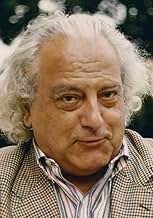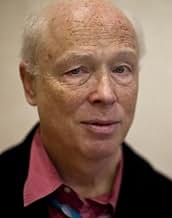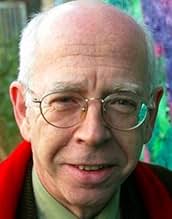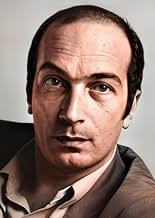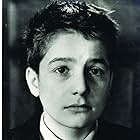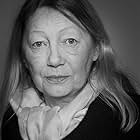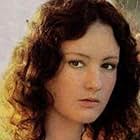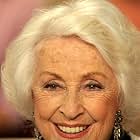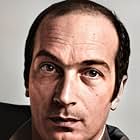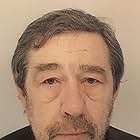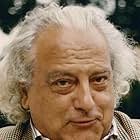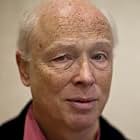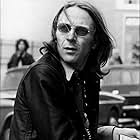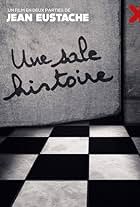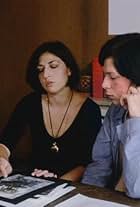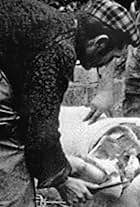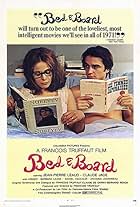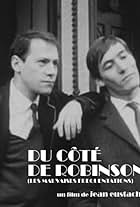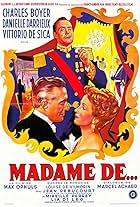AVALIAÇÃO DA IMDb
7,7/10
7,1 mil
SUA AVALIAÇÃO
O chauvinista Alexandre mantém relações com várias mulheres na cena intelectual de Paris depois de 1968.O chauvinista Alexandre mantém relações com várias mulheres na cena intelectual de Paris depois de 1968.O chauvinista Alexandre mantém relações com várias mulheres na cena intelectual de Paris depois de 1968.
- Prêmios
- 3 vitórias e 1 indicação no total
Jean-Claude Biette
- Un homme aux Deux Magots
- (não creditado)
Jean Douchet
- Un homme au Café de Flore
- (não creditado)
Bernard Eisenschitz
- Maurice
- (não creditado)
Jean Eustache
- Le mari de Gilberte
- (não creditado)
- …
Caroline Loeb
- Une jeune fille qui lit le journal en terrasse
- (não creditado)
Noël Simsolo
- Un homme au Café de Flore
- (não creditado)
Enredo
Você sabia?
- CuriosidadesThis film is based on the real-life relationship between director Jean Eustache and actress Francoise Lebrun (who plays Veronika). The character based on her is named Gilberte in the movie and is played by Isabelle Weingarten.
- Erros de gravaçãoAlexandre can be seen drinking a bottle of 1970 Gevrey-Chambertin, which would have been far too expensive for him to have purchased. This error is illuminated by his notable lack of money during the cafe scene, in which his date pays for his bill.
- ConexõesFeatured in A História do Cinema: Uma Odisseia: European New Wave (2011)
- Trilhas sonorasIch weiß, es wird einmal ein Wunder gescheh'n
Written by Bruno Balz, Michael Jary and Ralph Benatzky
Performed by Zarah Leander
Avaliação em destaque
Unfortunately, Jean Eustache (1938-1981) belongs like so many once leading French film makers nowadays to the great unknown ones whose movies are hard to find and are not released on international DVDs. Since we have a good old-fashioned video-store in Tucson, I had the chance to watch this 3 1/2-hour marathon masterwork that is not boring for ten seconds.
Since we speak here about one of the most discussed (and most controversially discussed) movies of all times, let me tell you my impression that the endless dialogs, originally typical for the early "Nouvelle Vague" of a Jacques Rivette or Alain Resnais appear almost ridiculous in this movie. The dialogs are basically monologues, mainly the longest ones spoken by Jean-Pierre Léaud. The most characteristic feature is that the intersections of the speeches of two people is almost zero. Léaud, or his character, Alexandre, pleases to tell more about himself than about the topics he is seemingly to speak. Therefore, one can hardly speak about communication in this movie. It is well possible that the director had a gargantuan satire in mind against the idle running of the once so hotly discussed political and sociological ideas, but the type of man Alexandre exists to all times, we find him already in Petron's "Satiricon", which work has actually great resemblance with "The Mother and the Whore".
Alexandre does not only nothing, but he has developed an own kind of metaphysics about the absence of acting, at least acting in the sense of responsibility toward the society whose part he is. He mocks at the people who run to work at 7 c'clock in the morning, when he is just busy having his last drink before he goes to bed in the apartment of one of his girlfriends from whose money he lives. He is unable to speak one sentence without quoting one of the leading thinkers between Nietzsche and Bernanos. Especially Sartre who is shown quickly in the French intellectual café "Aux Deux Magots", where Alexandre, too, is sitting all day, must serve as excuse for the life-style of Alexandre and his colleagues, because they suffer existential crisis from bourgeois nausea. However, the intellectual speeches of Alexandre seem to be rather pseudo-intellectual, and the sentences and quips he cites seem to come rather from a dictionary of quotations than from his actual reading of the respective books.
It is true: This movie demands an extremely broad European knowledge, especially the connoisseurship of French existentialist philosophy and there consequences to the 68 student revolution movement, but if you have this knowledge, than you will enjoy 215 minutes of your life by staring amazed into the TV and crying out with laughing like you have probably not done it since a long time.
Since we speak here about one of the most discussed (and most controversially discussed) movies of all times, let me tell you my impression that the endless dialogs, originally typical for the early "Nouvelle Vague" of a Jacques Rivette or Alain Resnais appear almost ridiculous in this movie. The dialogs are basically monologues, mainly the longest ones spoken by Jean-Pierre Léaud. The most characteristic feature is that the intersections of the speeches of two people is almost zero. Léaud, or his character, Alexandre, pleases to tell more about himself than about the topics he is seemingly to speak. Therefore, one can hardly speak about communication in this movie. It is well possible that the director had a gargantuan satire in mind against the idle running of the once so hotly discussed political and sociological ideas, but the type of man Alexandre exists to all times, we find him already in Petron's "Satiricon", which work has actually great resemblance with "The Mother and the Whore".
Alexandre does not only nothing, but he has developed an own kind of metaphysics about the absence of acting, at least acting in the sense of responsibility toward the society whose part he is. He mocks at the people who run to work at 7 c'clock in the morning, when he is just busy having his last drink before he goes to bed in the apartment of one of his girlfriends from whose money he lives. He is unable to speak one sentence without quoting one of the leading thinkers between Nietzsche and Bernanos. Especially Sartre who is shown quickly in the French intellectual café "Aux Deux Magots", where Alexandre, too, is sitting all day, must serve as excuse for the life-style of Alexandre and his colleagues, because they suffer existential crisis from bourgeois nausea. However, the intellectual speeches of Alexandre seem to be rather pseudo-intellectual, and the sentences and quips he cites seem to come rather from a dictionary of quotations than from his actual reading of the respective books.
It is true: This movie demands an extremely broad European knowledge, especially the connoisseurship of French existentialist philosophy and there consequences to the 68 student revolution movement, but if you have this knowledge, than you will enjoy 215 minutes of your life by staring amazed into the TV and crying out with laughing like you have probably not done it since a long time.
- hasosch
- 23 de abr. de 2009
- Link permanente
Principais escolhas
Faça login para avaliar e ver a lista de recomendações personalizadas
- How long is The Mother and the Whore?Fornecido pela Alexa
Detalhes
- Data de lançamento
- País de origem
- Centrais de atendimento oficiais
- Idioma
- Também conhecido como
- A Mãe e a Prostituta
- Locações de filme
- Café Les Deux Magots - 6 place Saint-Germain-des-Prés, Paris 6, Paris, França(Alexandre's usual café)
- Empresas de produção
- Consulte mais créditos da empresa na IMDbPro
Bilheteria
- Faturamento bruto nos EUA e Canadá
- US$ 40.555
- Fim de semana de estreia nos EUA e Canadá
- US$ 5.135
- 25 de jun. de 2023
- Faturamento bruto mundial
- US$ 47.344
- Tempo de duração3 horas 37 minutos
- Cor
- Mixagem de som
- Proporção
- 1.37 : 1
Contribua para esta página
Sugerir uma alteração ou adicionar conteúdo ausente

Principal brecha
What was the official certification given to A Mãe e a Puta (1973) in Japan?
Responda
